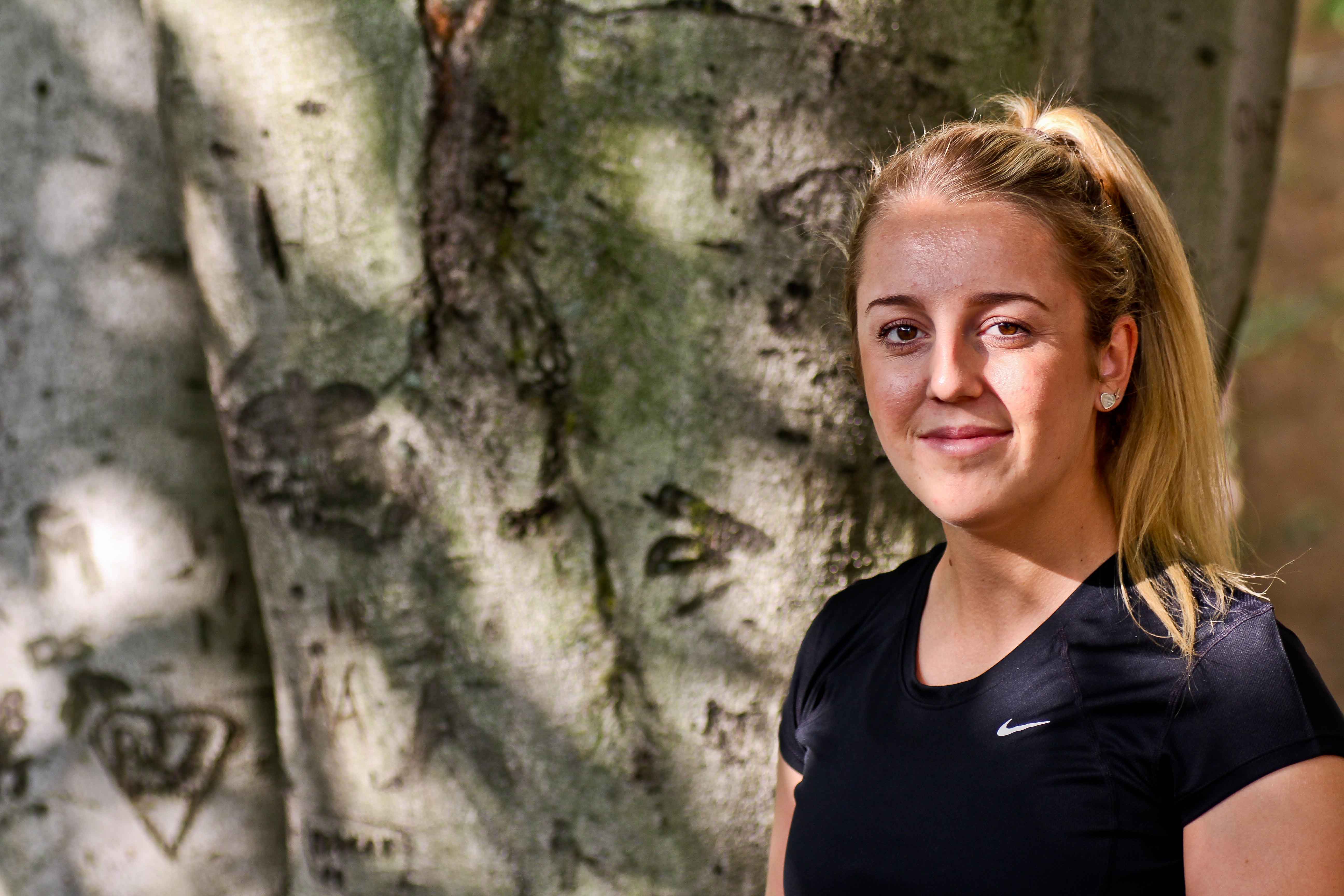
Do you like tea? Do you love Harry Potter? Are you from Australia?
These are the sorts of questions England-born Fran Steele has been asked in her short time as a student in the United States. Yet despite these seemingly ignorant assumptions, Fran still finds pride in where she comes from. “We are quite patriotic as a nation,” she says of England, “we’re such a small country, but we’re still really competitive. We compete against really large countries and we always end up doing quite well.”
One could say that Fran Steele knew from a young age what it meant to be competitive. Starting at age five, Fran was playing local football – that means soccer to us Yanks – in her hometown of Elsenham, a small village in the county of Essex. At around age seven, Fran went out for a trial at the Arsenal youth academy, a branch of a professional football club that seeks to nurture the young talent who hope to earn a spot at the professional level. Fran made it through to the fifth and final trial, but her journey ended there. She recalls the exact moment, saying, “I was like, ‘I’m never trying out for them again.’ I was so heartbroken.”
But even in the face of adversity, Fran didn’t give up; she kept going for the love of the game and played for a team in Ipswich into her teen years. Eventually, her perseverance and hard work there paid off. While still playing for Ipswich, the Arsenal coach contacted her and said that they were interested. This time she had people at the program endorsing her; the next trials were a breeze and she made the team.
Soccer has taught Fran a lot about determination, but the sport has also exposed her to cultures from all over the world. At fourteen, the English youth national team, a team that she would eventually captain and play with until she left for Yale, scouted her. As a member of the squad, Fran got to visit many countries. “I really enjoyed travelling,” she notes of her time abroad. “We’d go to so many interesting places like Norway, Sweden, Ireland.” Ultimately, soccer was able to provide her with the opportunity to widen her perspective, a fact she is not quick to forget.
Despite Fran’s extensive travel and exposure to different places outside of England, culture shock still found its way to Fran upon her arrival at Yale. According to her, there is not a whole lot of contrast in her small village of Elsenham, a town whose population is almost half as small as Yale’s undergraduate one. “You obviously get more diversity when you go into central London, but say, in my village, everyone is pretty much the same.” Although she may not have come face to face with different types of people growing up, this has certainly been made up for in her day-to-day routine here at Yale. Fran explains, “In my German class we’ve got everyone trying to speak one language, but…everyone’s so different,” she adds, “their backgrounds are so different. It’s really interesting.”
Fran found the Yale atmosphere welcoming despite the fact that she came to New Haven concerned about fitting in. “You’re never going to know everyone, whereas in England you’ll know, say in your village, everyone. In your school, you’ll know everyone.” This poses a tough obstacle that may also present itself to many other Yalies besides Fran: the pressure to soak up every experience possible in four short years of college. For Fran, that sometimes manifests itself in an almost overwhelming amount of people she wants to get to know. “I really feel that I’ve met so many people with interesting backgrounds that I would never meet in England,” she eagerly explains.
One of the biggest reasons Fran appreciates the way Yale differs from life back at home is that, if Fran were at college – or, as they say across the pond, university – in England, she would most likely not be able to play soccer. “If I went to university in England, I definitely wouldn’t be able to combine it with sport. You have to give up one or the other.” And if you try to do both, “you’re going to fall behind.” Fran explains to me that that is just the way it is in England, not only for female soccer players, but for males as well. Take David Beckham, one of England’s most iconic footballers. At the young age of sixteen, Beckham was drafted to play for Manchester United. And when a club as big as ‘Man U’ signs a player, they tend to put the rest of their lives on hold for the sport. This is similar to what female soccer players, including many of Fran’s teammates back home, go through, except they aren’t paid nearly as much as the men, who can make a living by playing soccer on their journey into the big leagues.
Being able to both get an education and continue playing the the sport she has grown to love so much is one of the biggest reasons Fran appreciates Yale, as well as the American liberal arts education as a whole. England doesn’t “do the whole liberal arts thing,” she says. In England it works a little differently. Students take a university entrance exam called A-levels. After the A-levels, you pick a field you’d like to pursue and, as Fran says, “you’re stuck with it.” If Fran were in England, she would be pursuing a career in medicine, but that would also mean she would not be playing soccer, she notes. For this reason, she can safely say, “I don’t feel like I’ve thrown away an opportunity. I can still do medicine,” she says with a grin, “it’s just going to take longer.”
Geneva Decker is a junior in Ezra Stiles College.